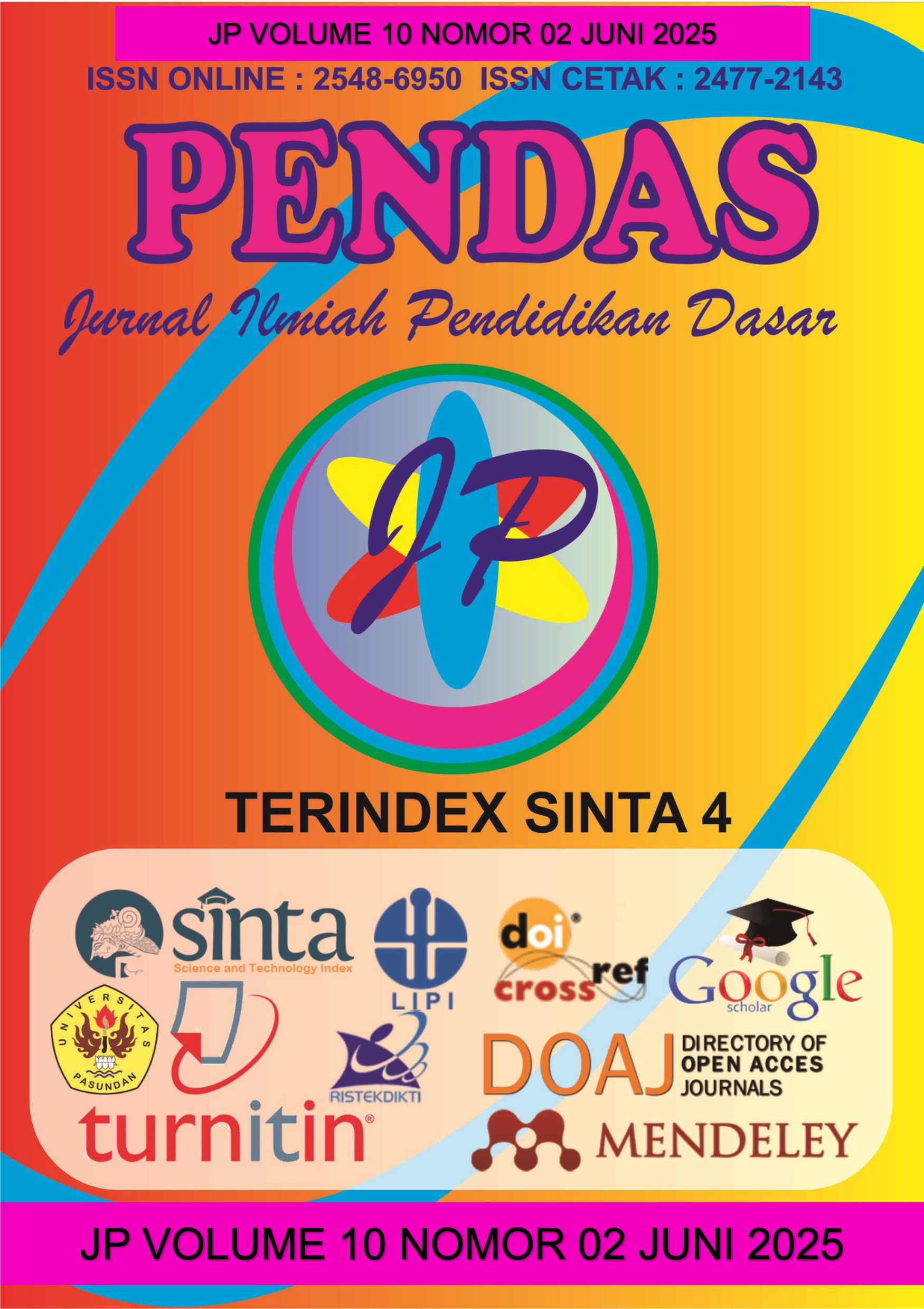MODEL BAHAN AJAR BAHASA INDONESIA YANG IDEAL DAN INOVATIF
DOI:
https://doi.org/10.23969/jp.v10i02.25209Keywords:
Teaching Materials, Indonesian, Ideal, Innovative.Abstract
Education is very important and an inseparable part of human life's journey. Through education, the quality of human resources can be increased by improving the education they receive. These qualities are important to participate in global life and live a fulfilling life. In Indonesia too, education is undergoing various changes which are reflected in the school curriculum with the reason that ``the curriculum needs to be replaced because it is not in line with current developments,'' and innovation is needed. Overall, the aim of this article is to describe an ideal and innovative model of Indonesian language teaching materials. The research results obtained show that in creating innovative teaching materials, educators need to know the factors that can support the success of the learning process, including knowledge about the teaching materials.
Downloads
References
Adzkiya, D. S., & Suryaman, M. (2021). Penggunaan Media Pembelajaran Google Site dalam Pembelajaran Bahasa Inggris Kelas V SD. Educate: Jurnal Teknologi Pendidikan, 6(2), 20-31.
Fadly, M. R. (2021). Memahami desain metode penelitian kualitatif. Humanika, 21 (1), 33-54. https://doi: 10.21831/hum.v21i1. 38075. 33-54.
Kamhar, M. Y., & Lestari, E. (2019). Pemanfaat Sosial Media Youtube Sebagai Media Pembelajaran Bahasa Indonesia DI Perguruan Tinggi. Inteligensi: Jurnal Ilmu Pendidikan, 1(2), 1-7.
Leuwpl, F. S., Setyawan, G. C., Riyadi, A., Hidayat, A. A., & Saputra, D. G. (2023). Use of Technology in Open and Distance Learning: Transforming Education. At-Tasyrih: Jurnal Pendidikan Dan Hukum Islam, 10(1), 183-194. https://doi.org/10.55849/attasyrih.v10i1.216
Lusianawati, H., Mokodenseho, S., Saputra, D. G., & Pujowati, Y. (2023). Tracking the Impact of Local Wisdom in Sustainable Cultural Heritage Conservation: A Bibliometric Approach. West Science Social and Humanities Studies, 1(03), 115–126. https://doi.org/10.58812/wsshs.v1i03.251
Magdalena, I., Prabandani, R. O., Rini, E. S., Fitriani, M. A., & Putri, A. A. (2020). Analisis pengembangan bahan ajar. Nusantara, 2(2), 180-187.
Mayasari, N., Saputra, D. G., Widiatsih, A., & Purnama, Y. (2023). Bibliometric Analysis in the Realm of Character Education Management in the School Environment. West Science Business and Management, 1(04), 213 – 222. https://doi.org/10.58812/wsbm.v1i04.244
Mulyana, A. T. (2018). Model pengembangan bahan ajar bahasa Indonesia sebagai mata kuliah wajib umum (MKWU) berbasis paradigma pembelajaran abad ke-21 pada aspek career and life skills (CLS). Jurnal Inovasi Pendidikan MH Thamrin, 2(2), 43-54.
Saputra, D. G. (2018). PEMAHAMAN NILAI-NILAI PAPPASANG DALAM MENINGKATKAN KARAKTER BANGSA YANG BERKEARIFAN LOKAL. Risenologi, 2(1), 46–55. https://doi.org/10.47028/j.risenologi.2017.21.10
Saputra, D. G., & Karnawati, T. A. (2021). Faktor-faktor yang Mempengaruhi Orang Tua dalam Pengambilan Keputusan Memilih Lembaga Pendidikan Formal. Prosiding seminar nasional kelompok bidang keahlian SDM: pengembangan kapasitas dan kompetensi SDM era digital pasca covid 19, 50–55. https://doi.org/10.5281/zenodo.5074997
Saputra, D. G., Dawud, & Basuki, I. A. (2021). Argumentasi dalam Teks Pidato Mahasiswa. Jurnal Pendidikan: Teori, Penelitian, dan Pengembangan, 6(1), 1704 – 1716. http://doi.org/10.17977/jptpp.v6i11.15114
Sari, I. K. (2021). Blended learning sebagai alternatif model pembelajaran inovatif di masa post-pandemi di sekolah dasar. Jurnal Basicedu, 5(4), 2156-2163.
Siahaan, N. (2018). Model pembelajaran berbasis kearifan lokal.
Solehuddin, M., Sopandi, E., Saputra, D. G., Dhaniswara, E., Yulianto, S., Wei, Z., & Xu, S. (2023). Development of Adaptive E-Learning Content to Increase Learning Effectiveness. Journal International Inspire Education Technology, 2(2), 87–98. https://doi.org/10.55849/jiiet.v2i2.457
Wahyuni, N., Putri, D. K., Widiyastuti, S., Siburian, H. K., & Saputra, D. G. (2023). The Impact of Social Media on the Learning Process of Children Aged 6-12 Years Old. Journal International of Lingua and Technology, 3(1), 29–42. https://doi.org/10.55849/jiltech.v3i1.507
Downloads
Published
Issue
Section
License
Copyright (c) 2025 Pendas : Jurnal Ilmiah Pendidikan Dasar

This work is licensed under a Creative Commons Attribution 4.0 International License.



















